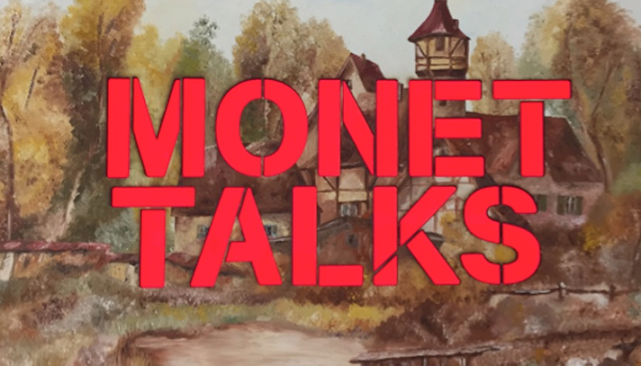Local government's 'duty to involve' the English is being scrapped
- Category: Society, culture and politics
- Hits: 14189

The government has decided to scrap the ‘Duty to Involve’ citizens in England, retaining only the ‘Duty to Consult’.
(This article was first published in the OpenDemocracy website and it's published here with their kind permission)
This may seem like a technical matter, likely to turn off anyone without an interest either in words or in participatory democracy. However, the difference between ‘involving’ and ‘consulting' citizens has real consequences for how much power the English people have to define what happens in our communities and to our public services.
The Duty to Involve was imposed on English councils and other local bodies by the Labour government in 2009. It requires public bodies to ‘inform, consult and involve citizens (or their representatives) in decision-making where appropriate’. It aimed to ‘embed a culture of engagement and empowerment’.
This month the government confirmed its commitment to scrap the duty.
The Coalition will retain the Duty to Consult, which was imposed ten years earlier, in 1999. This second duty places a requirement on councils to consult ‘representatives of council tax payers, those who use or are likely to use services provided by the authority, and those appearing to the authority to have an interest in any area within which the authority carries out functions.’
This represents a significant shift for democracy in England, but is dealt with in only two pages of the government’s new Best Value Statutory Guidance.
The Duty to Involve, which we at Involve supported during its development and subsequent enactment, is highly aspirational. It clearly distinguishes between informing citizens, consulting citizens (about the detail of already decided policies) and engaging them (in the formulation of yet to be decided policies). These are important distinctions and all three types of engagement are valid and important. However, the duty is virtually unenforceable because of its vagueness.
The Duty to Consult on the other hand is much more tightly defined and hence much more enforceable. However, the wording of the duty carries real risks as my colleague Edward Andersson points out in a recent blog post, “…it could easily lead councils to consult on everything regardless of whether decisions have already been made or not. This is a recipe for consultation overload, cynicism and a devaluing of consultation more broadly.”
The importance of the ‘Duty to Involve’
The jury is out on whether the Duty to Involve was a good thing or not. There is in fact limited evidence about whether it works or not. As a result, our support for theDuty to Involve is now much more lukewarm.
However, the impulse pushing us to promoting it remains; government still struggles to engage with citizens effectively. And it must do better, because the world has changed fundamentally over the past 15-20 years.
The challenges facing our communities are ever more complex and multi-layered. Citizens have access to information as never before and are demanding a greater say. This requires government to engage with them, and engage in a very different way. It must move from engagement on one-off policy processes to a position where it maintains a much more continuous level of conversation with citizens about strategic or challenging policy areas.
This crystallised for me as I wrote a quick blog about the government’s recent decision to establish and independent inquiry into the August riots. These riots are not a one-off; they are part of a long line of community disaffection and disconnection from power erupting into violence. As the blog concludes, a one-off inquiry, however well-intentioned and implemented will do nothing to ensure that future communities and governments are any better connected,
“… nothing will change and we will be doomed to repeat a cycle of crisis followed by calls for inquiries into political disconnect, followed by ineffectual commissions, panels and inquiries, a lack of action and then yet more crisis.”
The challenge facing government is one faced by the whole of government and not just at the local level. For example, we recently did some work for the Department of Health exploring how, with the closure of the Human Genetics Commission, the Department will be able to maintain an open, transparent and on-going dialogue with the public about the implications of developments in human genetics for patients, healthcare and society as a whole. My personal observation would be that it is going to be very difficult without political will combined with the development of carefully thought through institutional structures and processes.
The problem for the Department will be how it can move from a position where it identifies emerging issues to engage citizens on, towards a structure which will allow citizens to engage in an on-going way to help identify emerging issues together. In an area as fraught as human genetic science anything less than continuous engagement risks eroding public trust that the government is doing the right thing.

How to fulfil this duty?
So, how does the government develop an infrastructure for more continuous engagement with citizens about critical challenges facing our country? I started to develop my thoughts on this a year ago in a post here on Open Democracy. This post explored how the government might develop a meaningful dialogue with the British taxpayer about foreign aid.
In 2009, David Cameron proposed MyAid, a process by which the British public would vote on development projects to influence aid spending. The aim of MyAid would be to help promote better understanding about how our aid budget is spent. In my post I explained why I thought that the way the government was going about it was a bad idea and how it could be improved. Looking back at it now, I realise that what I am proposing at the end is an infrastructure for continuous engagement and accountability.
Once you start looking for it, you see calls for citizen engagement everywhere. I’ll highlight two in order to point out different aspects of the problem before reflecting again on what an infrastructure of engagement might look like.
As has been discussed on these pages, in reaction to the News of the World hacking scandal the campaign group Compass called for a citizens jury to ‘put the public interest back into the heart of the system [of government].’ In demanding this citizen engagement process, the signatories to this call highlighted media ownership, the financial crisis, and a range of other issues.
One problem with Compass’s jury idea is that it isn’t connected into the institutions of government that can actually make what it calls for happen. In addition, the issues that have prompted the call for the jury are not one off issues. One citizens’ jury is not going to solve the UK’s financial system ore media accountability forever. People with power will always subvert systems of accountability to make a quick buck or gain more power.
In short, a one-off citizen’s jury is like bolting only one door in the stables at Ascot; it’s too late and, much worse, won’t stop other horses bolting again in the future.
My second example is the government’s recently instituted e-petitions system which is intended to ensure that any petition receiving over 100,000 signatures will be debated in Parliament. In a demonstration of how difficult it is to connect systems of engagement with systems of democracy, Parliament spectacularly failed to find a way to debate the first two petitions that hit the threshold. If there is any system designed to reduce public trust more, it is one that calls for public input and then fails to respond.
But the e-petitions system suffers from other big problems too. Guido Fawkesrecently launched a petition to reinstate capital punishment. As of 8 September, this had 20,017 signatories. A rival petition to retain the ban has 28,426 signatories. Guido claims that a majority support capital punishment and while the two e-petitions would suggest he is wrong. I don’t think that it’s actually possible to tell. Rather, it raises questions about whether supporters of the death penalty are less likely to be online, actually don’t exist, or whether Guido isn’t as influential as perhaps he thought.
The death penalty, like many other public policy issues, is highly emotive. There are strongly held arguments on both sides. My fear is that the e-petitions system risks polarising public opinion rather than finding ways to identify shared middle ground. I believe that the e-petitions system needs a concrete mechanism to engage citizens more deeply when emotive and conflicting issues are raised in petitions. Just as with case of the citizens’ jury, the aid budget and a number of other critical public policy issues, we need an infrastructure of engagement that connects citizen voices that have had time to reflect, learn and listen, to the structures of power and decision.
Aren’t citizens already involved?
But, the critics will claim, we already have a mechanism to engage citizens. It is called Parliament and it is where the peers of citizens sit and debate and deliberate the biggest challenges facing us. Why on earth should we spend significant amounts of taxpayers money replicating this structure?
My answer would be threefold. Firstly, MPs are not elected because voters agree with absolutely every position they take. Indeed, for some issues, like nanotechnology or geoengineering, they probably haven’t even formed a view at the time of the election. Yet the decisions they take about regulation will affect us for decades to come. For issues such as these there isn’t even a right answer; there are a series of trade-offs that need to be balanced. The public must be deeply involved in that balancing act.
Secondly, any infrastructure of engagement that is developed won’t be tackling every issue under the sun like Parliament has to. If it is to be effective, it is going to require time and energy from government and from citizens. So it can only be about a small number of critical which will affect us far into the future.
*
Finally, this isn’t a call from the wilderness. From Cameron’s MyAid proposal, to the Treasury’s Spending Challenge, and Gordon Brown’s citizen juries, MPs and Ministers from all parties are proposing and establishing structures to engage the public increasingly frequently. They recognise the need. What they are struggling with is finding ways to connect these processes to the systems of government and to give them real power so that the voices of citizens really make a difference.
Suggesting that government develops infrastructure for citizen engagement goes against all that the Big Society is supposed to be promoting and this post risks being seen as irrelevant to many in government. However, I’d argue that, notwithstanding all of the arguments above, even if government did get out of the way and leave things to citizens in a Big Society sort of way, it would still need to find ways to listen to and engage with citizens groups if only to aggregate preferences and target funding effectively. The changing nature of the world is requiring government to develop a different relationship with citizens. The question is how it can best do this.
Simon Burall is director of Involve, an organisation that designs and promotes processes for public participation in government.
{module Facebook FanBox for articles}
{module Facebook All In one Module comments}
{module Related articles}


























